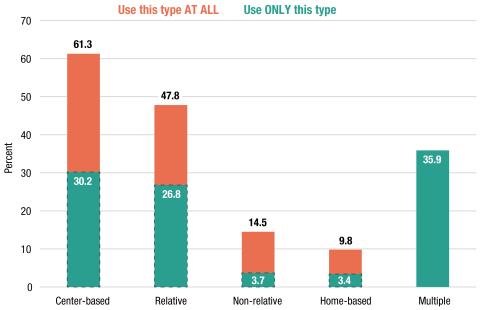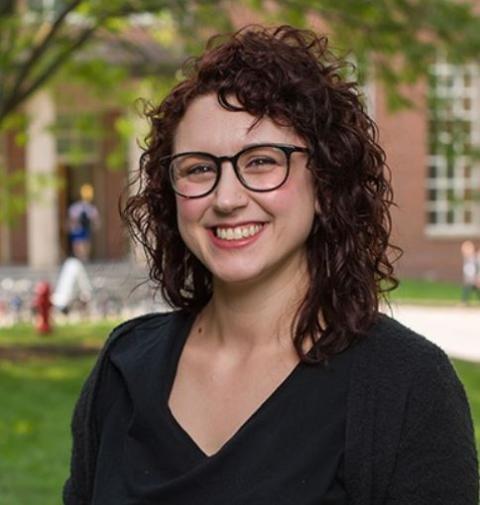Key Findings

Analyses of data collected by the U.S. Census Bureau between January and May 2023 show that 70.4 percent of New England households with a child under age five used at least some child care in the past seven days. However, analysis of type of care used demonstrates that more than one-third of these households are juggling multiple care arrangements to meet family needs (Figure 1). Households using care report center-based care as the most common arrangement (61.3 percent), although just 30.2 percent use only that type. About half of those who use center-based or relative care use only those forms, while between one-quarter and one-third of those using non-relative or home-based care use only that kind of care. Findings suggest that even having access to a formal slot in center- or home-based care may not be sufficient for meeting families’ needs. Finding the right type and mix of care is complex and underscores the need for flexible and diverse child care options for New England families.

Note: Estimates are calculated using household-level replicate weights. Percentages in Figure 1 are calculated only among New England households with a child under five who report using at least some child care in the past seven days. Source: U.S. Census Bureau, Household Pulse Survey, Phases 3.7–3.8 (partial), Weeks 53–57.

Jess Carson is the director of the Center for Social Policy in Practice and a research assistant professor at the University of New Hampshire’s Carsey School of Public Policy. Jess studies how policy affects people, focusing on how legislative and administrative decisions shape access to resources available through work, the social safety net, and community settings.
